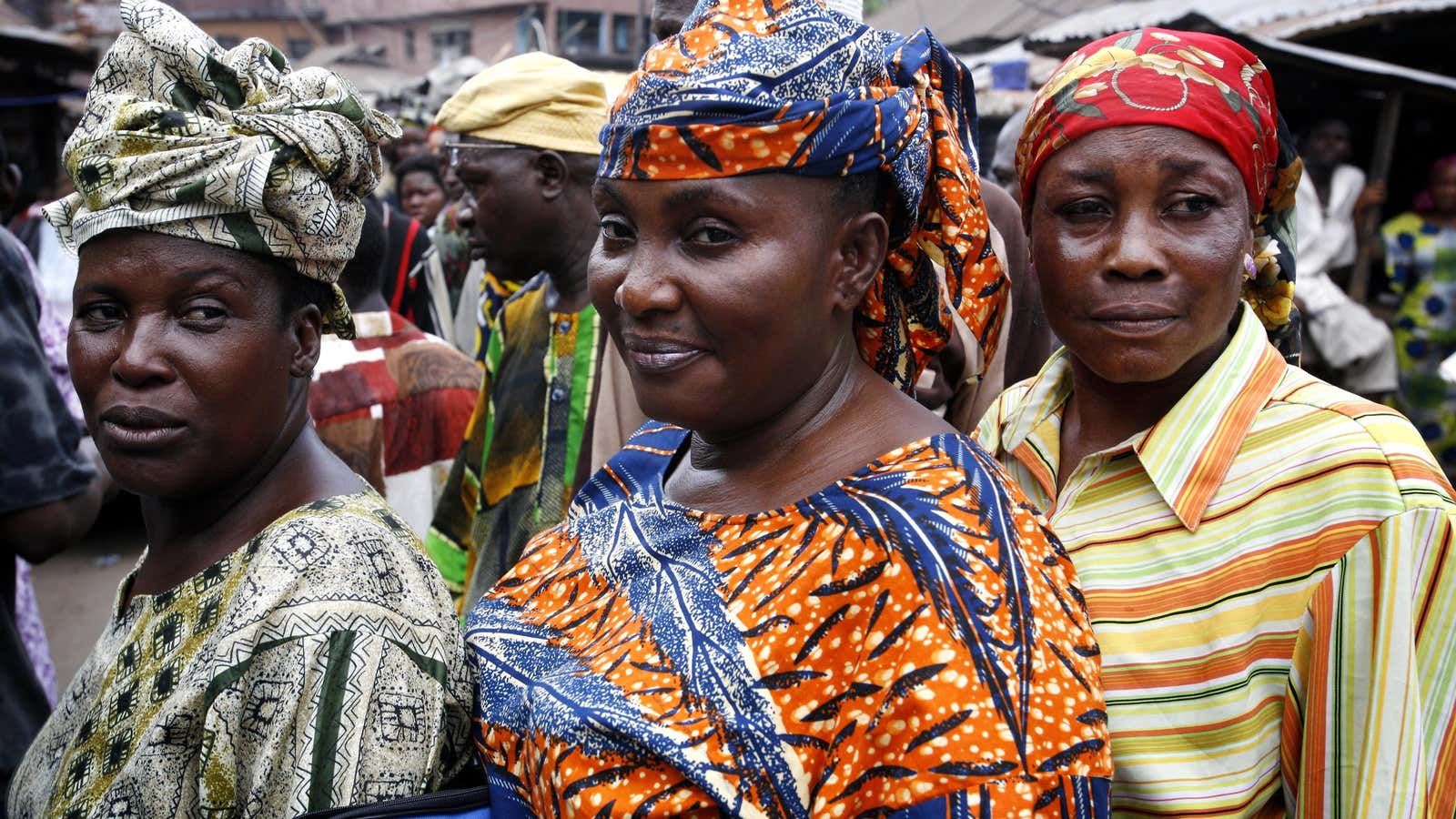On Sunday, June 30, Nigerian women organized a protest against sexual violence in the church following recent allegations by the wife of a popular singer that the Commonwealth of Zion Assembly (COZA) general overseer pastor Biodun Fatoyinbo raped her when she was 17 years old.
The flamboyant pastor trailed by murmurs of sexual impropriety and abuses of power in his conduct with his members for years, most famously in the 2013 scandal where a female member of his church revealed an affair with him.
COZA is known for its youthful congregation, so this fresh allegation dropped like an anvil, weighing heavily on social media conversation and demanding attention of leaders in the Christian Association of Nigeria (CAN). The added factor of the accuser Busola Dakolo being married to the well-known singer Timi Dakolo, added even more weight to her allegations. A day after the protests, the Fatoyinbo was forced to step down.
Nigerian women have had a lot to protest lately. In May, there were significant protests after mass arrests of women in clubs and bars at night for alleged prostitution in Abuja, the federal capital city. It’s worth noting none of the men who were apparently being solicited shared the same fate. Soon after their release some of the women shared grim stories of rape and extortion at the hands of the police. The police promised an investigation but not before the assistant superintendent of Police in an interview justified the mass arrests because women “are not supposed to be hanging around outside clubs.”
In the national elections held between March and April, only 3% of candidates—31 out of 938—for National Assembly in the two major parties APC and PDP were women, and only six won, leading to the lowest tally in the country’s democratic history. Women who ran unsuccessfully for office shared harrowing experiences of intimidation and violence at the hand of their party officials forcing them to step down and give up their political ambitions.
Beyond these recent happenings, Nigeria’s statistics on women’s well-being don’t make for pleasant reading. Up to19% of Nigerian girls have already started childbearing by the age of 15. By the age of 19, the number rises to 37%. Nigeria’s adolescent fertility rate in Nigeria is 120 births per 1,000 women aged 15–19 years. In its last jobs report of 2018, the National Bureau of Statistics showed that 26.6% of women – compared to 20.3% of men – able and willing to work are unemployed, which marks a 5.4% year-on-year increase from what it was in 2017.
Class, ethnicity and religion add nuance to the experience of being a woman and dictate the level of privilege and freedom women may have in her society. Although not everyone faces all the challenges in the same way, young middle and upper-middle class Nigerians on social media with higher than average levels of educational attainment and economic opportunity are raising questions about whether traditional roles and expectations are still fit for purpose.
For this reason, issues concerning women’s roles in society and in marriages generates plenty of engagement, and often highlights the gulf between older and younger women’s perspectives and expectations.
Additionally, the global #MeToo movement and other stories of sexual violence and discrimination elsewhere resonate powerfully in Nigeria, creating opportunity for both allyship and opposition, virtue signaling and mutual accountability.
These recent protests by Nigerian women are very much in line with recent happenings where social media is being used as a tool for organic mobilization offline. Recent examples of this include #ArewaMeToo which triggered difficult conversations on women’s rights in northern Nigeria, the #EndSARS advocacy against police brutality on young people; and #NotTooYoungToRun, which culminated in the National Assembly passing a law reducing the age at which one can run for some political offices.
Social media is not always a good predictor of a people’s pulse on various topics in Nigeria, but it does provide a platform for people who hold iconoclastic political views to find themselves, share ideas, and act.
Ingrained culture
The federal capital city’s government has carried out arrests of women like these before, and will likely wait until things have died down before trying them again. COZA showed its strength by paying influencers to speak positively of the pastor. It’s also widely believed the church arranged for the Nigerian Army and DSS officials who intimidated the protesters.
Sunday’s protests, though, also remind us of the ingrained culture and social attitudes that Nigerian women face when they rise up to complain. The women who protested at the COZA rape allegations and at the mass arrests of women in Abuja have faced insults and intimidation. Some Nigerian newspapers who wrote about the mass arrests tagged women who shared their experiences during the civil society press conference as “prostitutes” even though these women never disclosed their occupation.
The Christian Association of Nigeria (CAN) in its statement decried rape but stopped just short of criticizing the pastor. None of the few women in the National Assembly or wives of governors have yet made a statement on either of these recent protests.
And yet, a relatively small number of people used social media to mobilize against an institution as large and powerful as a popular Pentecostal church and caused it to respond to its demands. Social media is influential but far from indicative of the larger country, and maybe it does not have to be to be the only force for dramatic change.
Perhaps dramatic change in Nigerian society overnight is not the point. Whatever progress has been made, it is clear Nigerian society will not change overnight.
Sign up to the Quartz Africa Weekly Brief here for news and analysis on African business, tech and innovation in your inbox
